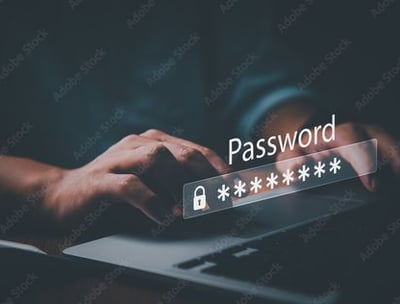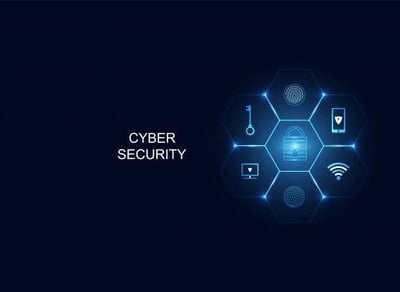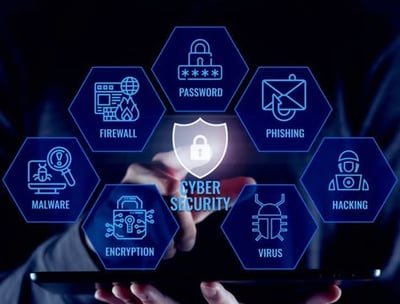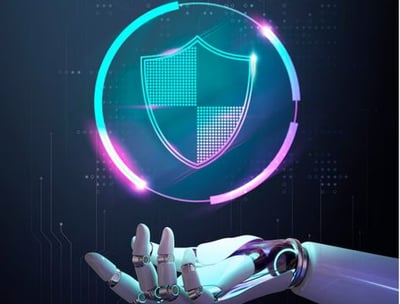
Start Earning Immediately After Mastering Cyber Security
Cyber security professionals are in high demand, and companies are actively hiring to protect their digital assets. Once you complete the course, you can start working as a freelancer, join a company, or consult on security projects. With skills in ethical hacking, network defense, and data protection, you can command a strong starting salary. Many students land job offers or freelance gigs right after completing the course.
What is Cyber Security?
Cyber security is the practice of protecting systems, networks, and data from digital attacks, theft, or damage. These attacks are usually aimed at accessing, changing, or destroying sensitive information, interrupting business operations, or extorting money from users. Cyber security involves the use of software, hardware, and protocols to guard against threats like viruses, malware, ransomware, and phishing. It also includes practices like using strong passwords, firewalls, and encryption. As the world becomes more digital, cyber security has become crucial for individuals, businesses, and governments. Regular updates and monitoring are essential for staying protected. Its main goal is to ensure the confidentiality, integrity, and availability of information.
What You Will Learn in Our Cyber Security Course
Master the most in-demand cyber security skills and protect organizations from digital threats with confidence. Get job-ready through hands-on training, simulated attack scenarios, and real-world tools. Learn from expert mentors and gain practical experience that sets you apart. Start your journey toward a secure and high-paying tech career!
1. Introduction to Cyber Threats


Understand different types of cyber threats like malware, phishing, ransomware, and more. Learn how they impact systems and the importance of staying protected. You’ll gain insight into how attacks are planned and executed.




2.Network Security Basics
Gain foundational knowledge of how computer networks operate and how to secure them. You’ll learn to use firewalls, VPNs, and intrusion detection systems. This helps in building a strong defense against unauthorized access.
Learn how ethical hackers identify system vulnerabilities before cybercriminals do. You’ll understand penetration testing methods and tools. It’s a hands-on way to learn defense through offense.
3.Ethical Hacking Fundamentals
4.Security Tools and Technologies


Work with real-world cybersecurity tools like Wireshark, Kali Linux, and antivirus platforms. These tools help detect, prevent, and respond to threats. You’ll develop practical skills needed in a professional environment.




5.Cyber Laws and Compliance
Understand the legal side of cybersecurity, including data privacy laws and industry compliance standards. Learn how organizations meet legal requirements to protect user data.
Apply your knowledge through projects and live simulations to solve real-time security challenges. This experience prepares you for job roles in cybersecurity. You’ll build confidence and a strong portfolio.
6.Real-World Projects and Simulations
Jobs You Can Get After Completing a Cyber Security Course
A certification in Cybersecurity opens the door to a wide range of career opportunities across industries. It equips you with the skills needed to protect systems, networks, and data from cyber threats. Here are some key roles you can pursue: Cybersecurity Analyst, Security Engineer, Ethical Hacker, Information Security Manager, and Network Security Specialist. Organizations across sectors like finance, healthcare, government, and technology are actively seeking certified cybersecurity professionals. As cyber threats continue to evolve, the demand for skilled experts in this field is growing rapidly.
1. Cyber Security Analyst


Monitor and respond to security breaches, analyze risks, and protect sensitive data. You’ll work with firewalls, intrusion detection systems, and vulnerability scanners. This is one of the most in-demand roles in the field.




2. Ethical Hacker
Legally hack systems to find and fix vulnerabilities before real hackers do. You'll perform penetration testing and write detailed reports on system weaknesses. Companies hire ethical hackers to stay ahead of threats.
Work in a security center, monitoring network activity 24/7. You’ll investigate alerts and escalate potential threats to security teams. This role is perfect for beginners looking to build real-time defense skills.
3. Security Operations Center Analyst
4. Network Security Engineer


Design and implement secure networks to protect organizational systems. You’ll configure routers, firewalls, and virtual private networks (VPNs). This job is technical and crucial for infrastructure protection.




5. Information Security Auditor
Conduct audits to check whether an organization’s security policies and procedures are effective. You’ll ensure compliance with standards like ISO 27001. It’s ideal for those who enjoy documentation and review work.
Act quickly during cyberattacks to limit damage and restore systems. You'll investigate breaches, analyze evidence, and write recovery reports. This role is critical in emergency cyber situations.
6. Incident Responder
Why Choose Us for Cyber Security?
Our Cyber Security course is designed with a perfect mix of theory and hands-on training to prepare you for real-world challenges. You'll learn from industry experts who bring their professional experience into the classroom. We offer practical labs, simulated attack scenarios, and access to leading security tools. Our curriculum is regularly updated to match the latest threats and technologies. You’ll also gain knowledge of ethical hacking, cyber laws, and compliance frameworks. With personalized mentorship and career guidance, we help you grow with confidence. Whether you're a beginner or looking to upskill, this course suits all levels. Upon completion, you’ll have both the knowledge and practical experience to land top security roles. Our placement support team ensures you're job-ready from day one.
